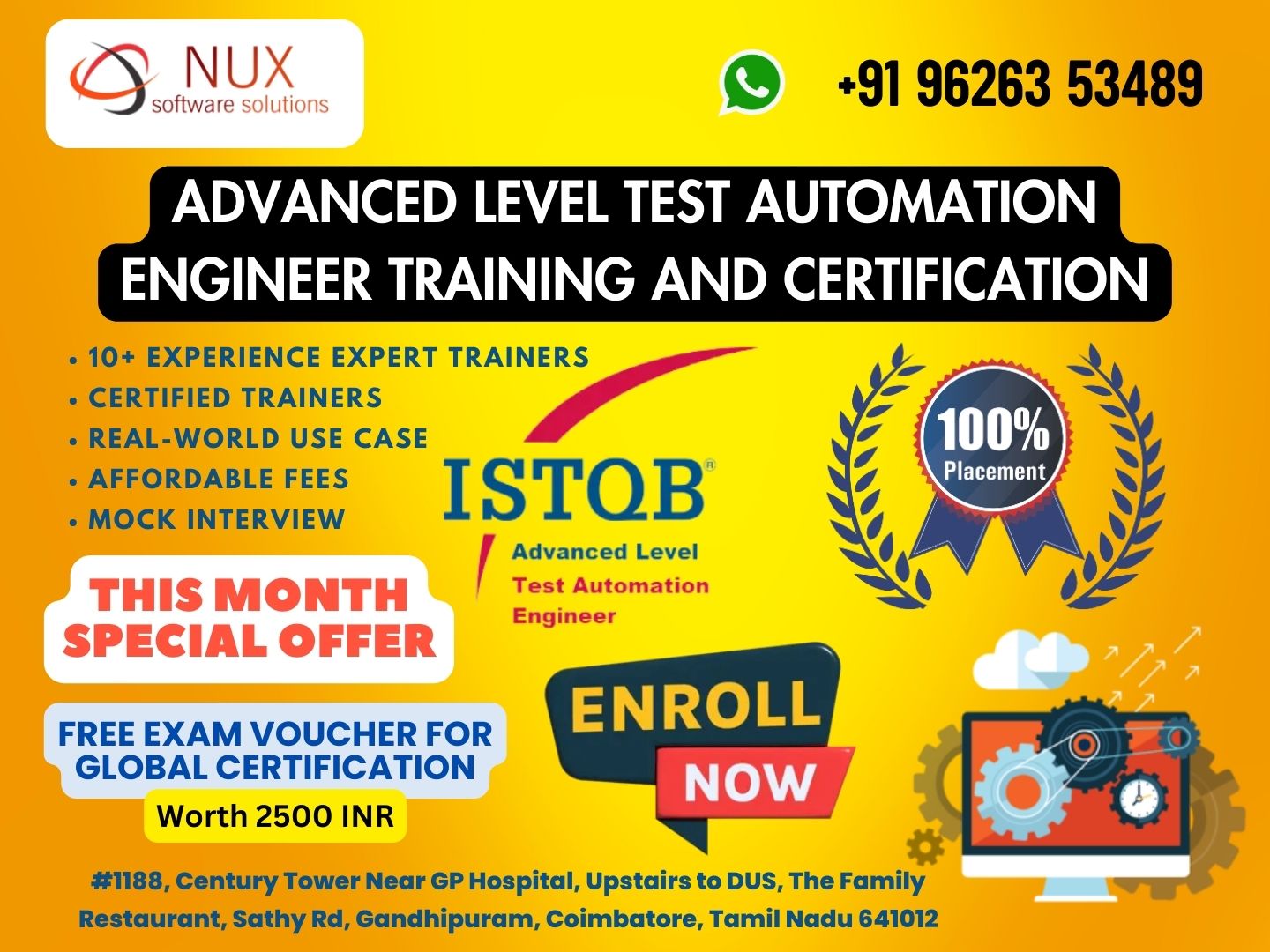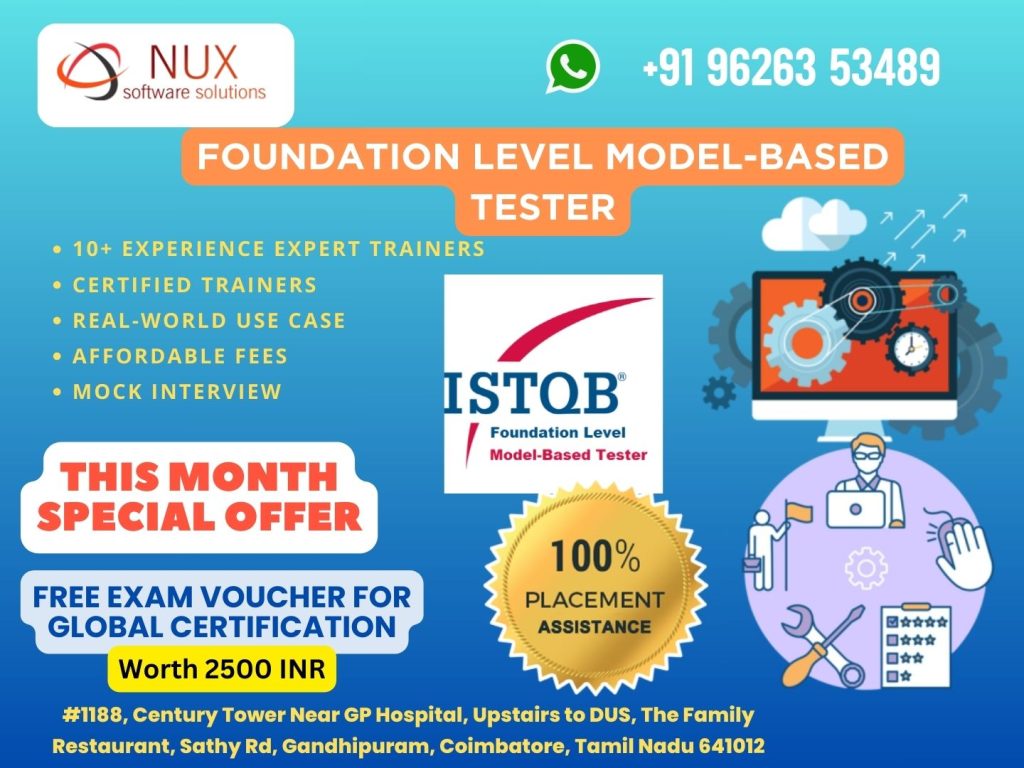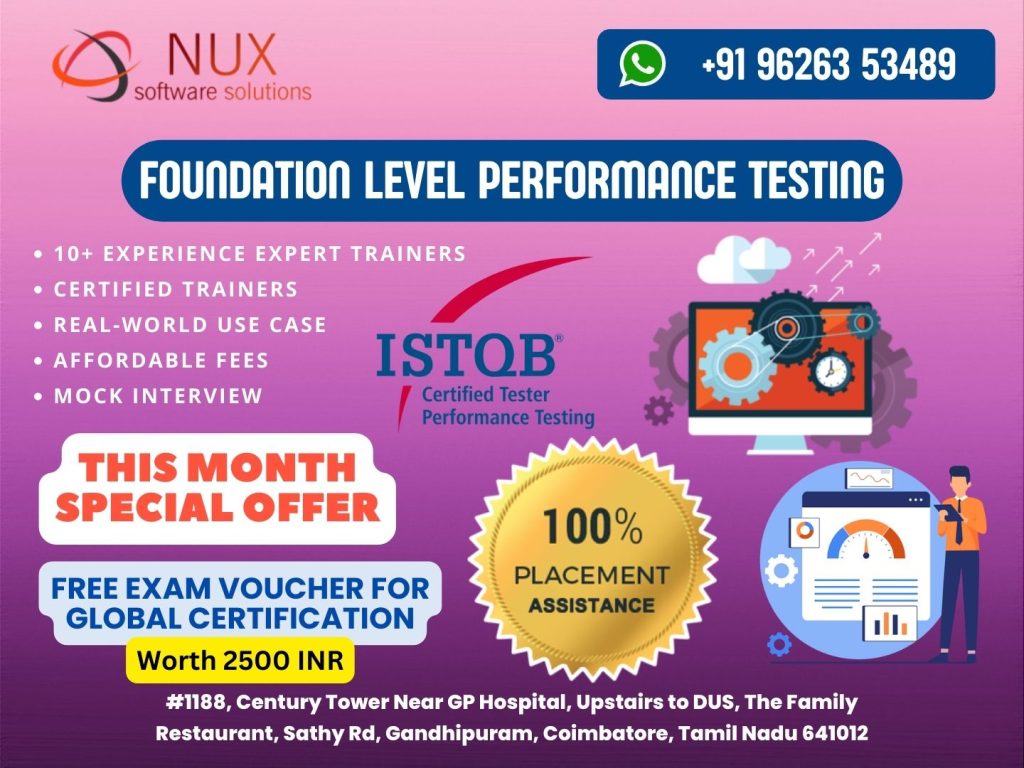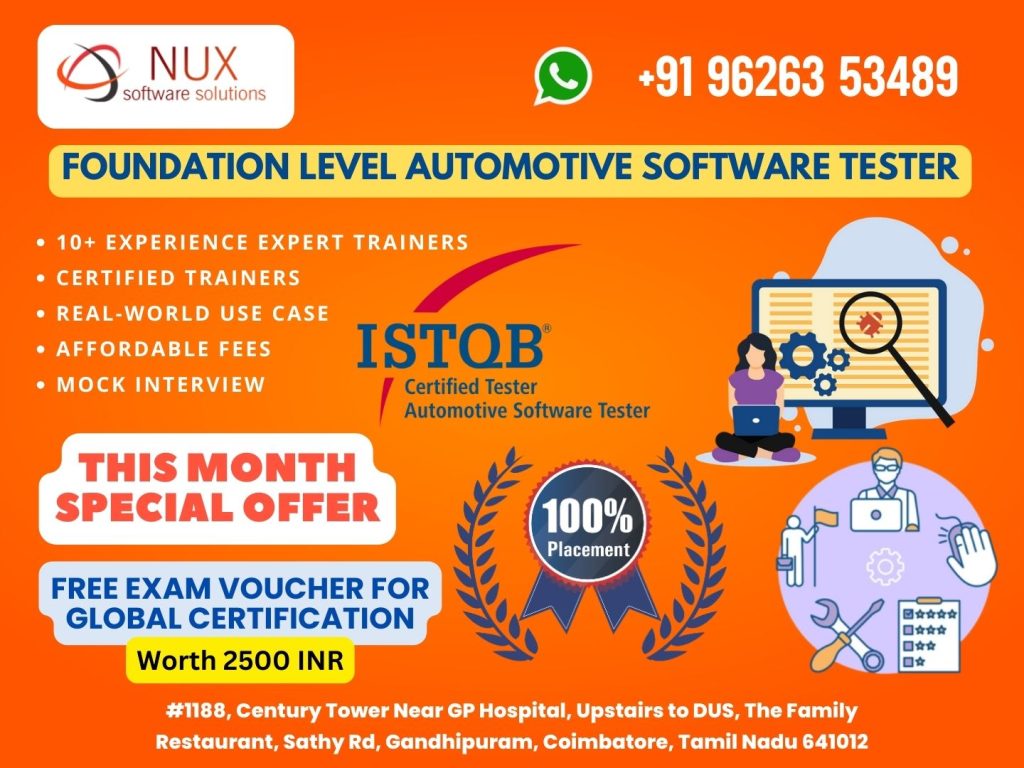Advanced Level Test Automation Engineer

ISTQB Advanced Level Test Automation Engineer Training in Coimbatore
Course Overview
The ISTQB Advanced Level Test Automation Engineer certification is tailored for professionals who are responsible for designing, developing, and maintaining test automation solutions. This training in Coimbatore provides advanced knowledge in test automation frameworks, strategies, and architectures, preparing you for real-world automation challenges in software testing environments.
This course builds upon the ISTQB Foundation Level and is ideal for test automation engineers, software developers in test (SDETs), and quality engineers aiming to deepen their automation expertise. You’ll explore the full automation lifecycle—from tool selection and framework design to test execution and reporting.
Participants will also understand integration with CI/CD pipelines, maintainability practices, and how to manage test automation debt.
What You’ll Learn
Concepts, benefits, and risks of test automation
Design and development of test automation architecture
Integration of automated tests into development and testing environments
Test automation strategies for different levels of testing (unit, integration, system)
Selecting appropriate tools and frameworks
Managing, maintaining, and monitoring automation solutions
Best practices in code maintainability, reusability, and scalability
Measuring and reporting automation ROI
Who Should Attend?
Test Automation Engineers
Software Developers in Test (SDETs)
QA Leads and Test Managers
Anyone involved in implementing or managing test automation
Professionals with ISTQB Foundation Level certification
Benefits of This Course
Gain in-depth knowledge of automation frameworks
Master the skills to design scalable and maintainable automation solutions
Enhance your capability to integrate automation into Agile and DevOps pipelines
Boost your career potential in QA and DevOps roles
Get fully prepared for the ISTQB Advanced Level Test Automation Engineer certification exam
Why Choose Us for Test Automation Engineer Training in Coimbatore?
Certified and experienced instructors
Real-time automation projects using tools like Selenium, TestNG, Jenkins, etc.
Updated syllabus aligned with ISTQB guidelines
Hands-on labs, case studies, and interview preparation
Flexible batch timings and career guidance
Advance your career in software testing. Join our ISTQB Advanced Level Test Automation Engineer training in Coimbatore and master the skills to automate with confidence.
Course Syllabus
Modules
Introduction to this Syllabus
0.1 Purpose of this Document
0.2 Scope of this Document
0.2.1 In Scope
0.2.2 Out of Scope
0.3 The Certified Tester Advanced Level Test Automation Engineer
0.3.1 Expectations
0.3.2 Entry and Renewal
0.3.3 Level of Knowledge
0.3.4 Examination
0.3.5 Accreditation
0.4 Normative versus Informative Parts
0.5 Level of Detail
0.6 How this Syllabus is Organized
0.7 Terms, Definitions and Acronyms
1.0 Introduction and Objectives for Test Automation
1.1 Purpose of Test Automation
1.2 Success Factors in Test Automation
2.0 Preparing for Test Automation
2.1 SUT Factors Influencing Test Automation
2.2 Tool Evaluation and Selection
2.3 Design for Testability and Automation
3.0 The Generic Test Automation Architecture
3.1 Introduction to gTAA
3.1.1 Overview of the gTAA
3.1.2 Test Generation Layer
3.1.3 Test Definition Layer
3.1.4 Test Execution Layer
3.1.5 Test Adaptation Layer
3.1.6 Configuration Management of a TAS
3.1.7 Project Management of a TAS
3.1.8 TAS Support for Test Management
3.2 TAA Design
3.2.1 Introduction to TAA Design
3.2.2 Approaches for Automating Test Cases
3.2.3 Technical considerations of the SUT
3.2.4 Considerations for Development/QA Processes
3.3 TAS Development
3.3.1 Introduction to TAS Development
3.3.2 Compatibility between the TAS and the SUT
3.3.3 Synchronization between TAS and SUT
3.3.4 Building Reuse into the TAS
3.3.5 Support for a Variety of Target Systems
4.0 Deployment Risks and Contingencies
4.1 Selection of Test Automation Approach and Planning of Deployment/Rollout
4.1.1 Pilot Project
4.1.2 Deployment
4.1.3 Deployment of the TAS Within the Software Lifecycle
4.2 Risk Assessment and Mitigation Strategies
4.3 Test Automation Maintenance
4.3.1 Types of Maintenance
4.3.2 Scope and Approach
5.0 Test Automation Reporting and Metrics
5.1 Selection of TAS Metrics
5.2 Implementation of Measurement
5.3 Logging of the TAS and the SUT
5.4 Test Automation Reporting
6.0 Transitioning Manual Testing to an Automated Environment
6.1 Criteria for Automation
6.2 Identify Steps Needed to Implement Automation within Regression Testing
6.3 Factors to Consider when Implementing Automation within New Feature Testing
6.4 Factors to Consider when Implementing Automation of Confirmation Testing
7.0 Verifying the TAS
7.1 Verifying Automated Test Environment Components
7.2 Verifying the Automated Test Suite
8.0 Continuous Improvement
8.1 Options for Improving Test Automation
8.2 Planning the Implementation of Test Automation Improvement



